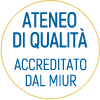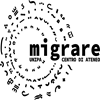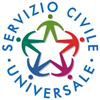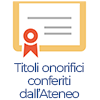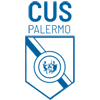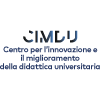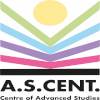Faculty of Science
LM-17 – PHYSICS
LM 17 - FISICA
Educational Objectives – Professional Opportunities for Graduates
Students of this degree course will learn how to promote and develop scientific and technological innovation and apply technologies to physics-related subjects in the following fields:
- Industry;
- Environment;
- Healthcare;
- Cultural Heritage;
- Computer Science;
- Public Administration.
The course content is divided into the following curriculum strands: Biophysics, Physics of Matter, Theoretical Physics, Astrophysics and Applied Physics.
The coursework is structured to achieve the following learning goals:
- a good command of scientific research methods;
- a thorough grounding of classical and modern Physics;
- advanced knowledge of modern measurement tools, data analysis techniques and mathematical and computer aids;
- advanced scientific and operational knowledge of disciplines of Physics;
- an ability to work in a completely independent way, and fill roles of responsibility in groups and operational projects;
- an ability to use the prior competences in modelling complex systems in the field of basic and applied sciences.
Graduates of this course may find professional opportunities in:
- Universities and research centres;
- Research and development branches in the advanced technology industry dealing with Electronics, ICT, innovative and nanostructured materials, Optics, Biotechnologies, Optoelectronics and Space-related activities;
- Professional laboratories in the various branches of Physics such as Radioprotection, Medical Physics, analysis of materials of historical and artistic interest, acquisition and elaboration of environmental data;
- Agencies for environmental control;
- Technical-commercial branches of the service sector and public administration;
- Advanced scientific or technological research activities;
- Diffusion of the scientific culture.
Educational Programme
Curriculum: Astrophysics
| 1st Year | Credits |
| Complements of Quantum Mechanics | 6 |
| Complements of Structure of Matter | 6 |
| Astrophysics Laboratory | 6 |
| Mathematical Methods of Physics | 6 |
| Radiation-Matter Interaction | 6 |
| Statistical Physics | 6 |
| Numerical Simulations in Physical Processes | 6 |
| Physics of the Universe | 6 |
| General Physics- Laboratory | 6 |
| Elective Activities | 6 |
| 2nd Year | Credits |
| Astrophysics | 6 |
| Competences related to the Labour Market | 2 |
| High Energy Astrophysics with Laboratory | 6 |
| Elective Activities | 6 |
| Final Examination | 40 |
Curriculum: PHYSICS OF MATTER
| 1st YEAR | credits |
| Complements of Quantum Mechanics | 6 |
| Complements of Structure of Matter | 6 |
| Mathematical Methods of Physics | 6 |
| Radiation-Matter Interaction | 6 |
| Statistical Physics | 6 |
| Numerical Simulations in Physical Processes | 6 |
| General Physics - Laboratory | 6 |
| Condensed State Physics | 6 |
| Elective Activities | 6 |
| Group of Optional Educational Activities | 6 |
| 2nd YEAR | credits |
| Competences Related to the Labour Market | 2 |
| Elective Activities | 6 |
| Group of Optional Educational Activities | 12 |
| Final Examination | 40 |
| Optional Educational Activities 1 | credits |
| Physics of Biosystems | 6 |
| Physics of Matter – Laboratory | 6 |
| Theory of Fields | 6 |
| Advanced Quantum Mechanics | 6 |
| Biophysics with Laboratory | 6 |
| Optional Educational Activities 2 | credits |
| Molecular Spectroscopy | 6 |
| Quantum Optics | 6 |





